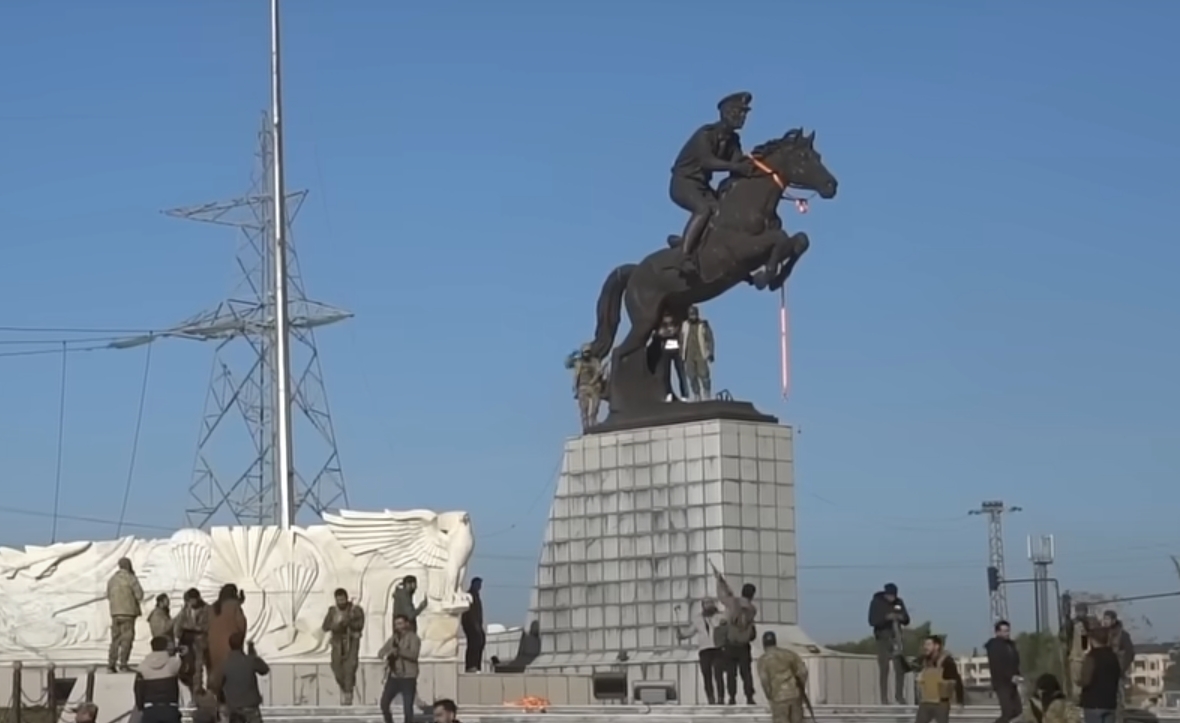Hello, readers. This week, the world watched in shock as Bashar al-Assad’s government was toppled by Syrian rebels, bringing the dictator’s 24-year-reign to a close and suddenly ending the country’s brutal 13-year civil war. He and his family have since fled, and allegedly claimed asylum in Russia.
One of the defining legacies of Assad’s ruthless regime were his inhumane prisons, where many political activists, journalists and protesters have been held. According to the UK-based monitoring group Syrian Observatory for Human Rights, nearly 60,000 people were tortured and killed in these jails. As news broke of the collapse of Assad’s government on 8 December, videos emerged of the Syrian rebel forces, led by the militant group Hayat Tahrir al-Sham (HTS), freeing people from the notorious Saydnaya prison, which had frequently been referred to as a “human slaughterhouse”. Many more people are thought to still be trapped in hidden underground cells.
Assad’s regime has been one of the most repressive for free speech in the world today. It became more violent and restrictive following the 2011 Arab Spring, when Syrians took to the streets to peacefully protest the government. A major crackdown on freedom of assembly followed, with political activists being detained and tortured, and civilians being targeted with artillery and internationally banned substances such as chemical weapons.
Journalists were imprisoned, tortured, killed and forcibly disappeared. Reporters Without Borders reports that 283 journalists have been killed in Syria since 2011, with 181 of these at the hands of Assad and his allies. On the day his regime fell, 23 journalists were reported to be in prison and another 10 missing. The human rights organisation ranked Syria a woeful 179 out of 180 countries in its latest World Press Freedom Index.
During his reign, Assad had increasingly introduced laws that curbed free speech. Following the uprising, a media law in 2011 had the guise of protecting independent journalism but in reality further restricted journalists’ reporting, legislating that free expression should be “practised with responsibility and awareness”, and prohibiting journalists from reporting on certain topics such as national security, the activities of the army and religious issues. A broad sweeping counter-terrorism law then came in in 2012, which further allowed the state to criminalise peaceful acts of dissent, and a cybercrime law in 2022 imposed six-month jail sentences for Syrian citizens who spread disinformation or “false news” undermining the state’s reputation.
One of the country’s most prominent political activists is Mazen Darwish. A journalist and lawyer, he founded the NGO Syrian Centre for Media and Freedom of Speech in Damascus in 2004, and was himself charged under the counter-terrorism act. He, alongside other members of his organisation, was arrested during an intelligence service raid in 2012, and he was subsequently imprisoned until 2015. In an interview with the German newspaper Die Zeit, he recalled the torture methods used in prison: electric shocks, suspending detainees by their hands, beatings and sleep deprivation. Following the fall of the regime this week, he tweeted: “For the first time in 50 years, I feel like a citizen.”
Assad’s ruthless reign is over, but the restoration of free speech and broader human rights will not be plain sailing from here. The rebel groups that have overthrown Assad have also been accused of human rights abuses. Of the 283 journalists killed in Syria since 2011, HTS is thought to have killed six journalists, whilst the group’s leader Abu Mohammed al-Joulani is allegedly responsible for the abduction of eight journalists, according to Reporters Without Borders. This is not to mention deaths of media workers at the hands of radical groups like the Islamic State, which reportedly assassinated 22 journalists in Syria between 2013 and 2017. Meanwhile, Kurdish reporters have been killed in airstrikes, which Kurdish media have attributed to the Turkish military.
Concerns also remain for the treatment of minorities such as Kurds, Assyrians and Alawites in the country following Assad’s demise. Whilst the rebels who overthrew Assad have promised tolerance and say they want to build a unified, inclusive Syria, a non-secular government or the emergence of militant factions could see further persecution of ethnic and religious minority groups, as happened in Iraq following the deposition of Saddam Hussein.
For the majority of Syrians, this week is a huge cause of celebration as political prisoners are freed and many of those who were exiled are able to return safely home. Hopefully, the violent repression of free speech in Syria will be over. But questions remain over whether the future leaders of Syria will restore human rights for all, and only time will tell.






